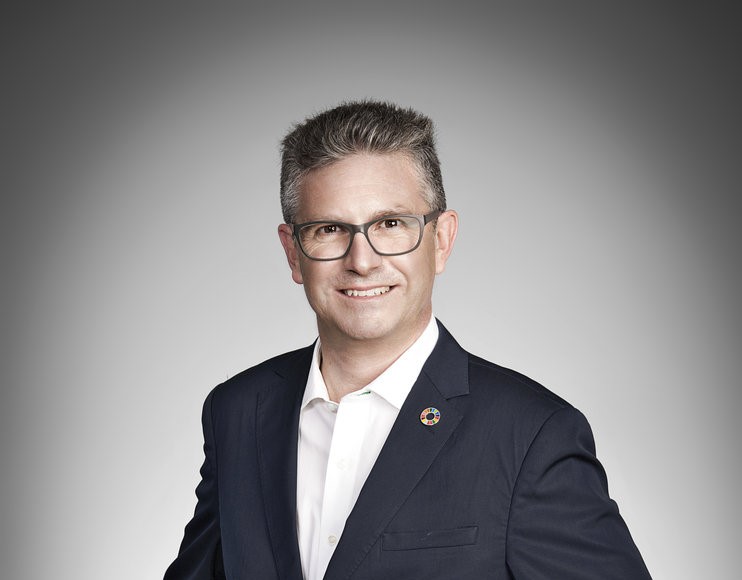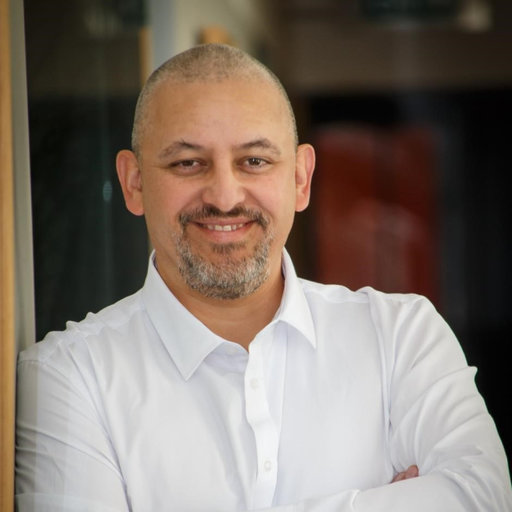CLIMATE RESPONSIBLE TRADE AND INVESTMENT FOR SUSTAINABLE DEVELOPMENT
Event description
Just like viruses knowing no borders, climate change also does not stop at the national border. Emissions and environmental damage produced in one country have an impact on other countries, and frequently globalization is seen as the main channel of transmission. The interconnectedness of countries through international trade and investment can make them collectively more vulnerable
International trade accounts for over fifty percent of global GDP (2020, World Bank). International Resource Panel and United Nations Environmental Programme jointly report (2020) one-third of material resources extracted in the global economy are destined to produce goods for trade. Resource extraction and production are the primary contributors to emissions. Further, despite trade and investment being credited with enabling rapid economic development, the benefits were not necessarily shared fairly; inequalities deepened in many countries adding new risks to the unsustainable patterns of development. Nevertheless, international trade and investment remain key means of implementation of the 2030 Agenda for sustainable development. Trade and investment can play a pivotal role in the decarbonization of the economy and in building resilience for future shocks through the necessary policies, standards, and strategies.
The United Nations Association of New Zealand-Wellington Branch brings a conversation on interrelationships and linkages in trade and investment and climate change and sustainability in the context of a wider consideration of sustainable development, at the time when the COP27 seeks renewed solidarity to deliver Paris Agreement in the present global complexity with many international crises and the COVID 19 pandemic aftermath.
The ZOOM link to join the forum https://us02web.zoom.us/j/8803...
You are very welcome to send your questions to the speakers and/or comments on the topic prior to the conversation directly to this event’s moderator Dr. Mia Mikic at mia.mikic@waikato.ac.nz.
Our speakers are...

“Main features of climate responsible trade and investment”
Dr. Yann Duval, Chief, Trade Policy and Facilitation Unit, United Nations Economic and Social Commission for Asia and the Pacific (UN ESCAP)
Yann has been instrumental in the creation and development of the Asia-Pacific Research and Training Network on Trade (ARTNeT), a network of leading research and academic institutions aiming at building capacity in trade and investment policy and facilitating research for evidence-based policymaking. He leads the activities of the United Nations Network of Experts for Paperless Trade in Asia and the Pacific (UNNExT), a community of experts dedicated to making trade more transparent and efficient through the electronic exchange of information. Since joining ESCAP in 2002, he has designed and delivered capacity-building programmes and advisory services on trade policy and facilitation throughout the ESCAP region, including the trade facilitation segment of the Regional WTO Trade Policy Course at the National University of Singapore.
His recent analytical work has focused on the need for trade and investment regulatory coherence and the development of a global bilateral trade cost database in collaboration with the World Bank. Prior to joining the United Nations, he was an Assistant Professor of International Business and of Agricultural Economics at the Asian Institute of Technology (AIT) in Thailand and Washington State University (USA). His work has been published in various academic journals.

“Climate and sustainability smart provisions in free trade agreements and other arrangements”
Ms. Rebecca Steffens-Smith, Unit manager, Rules, Sustainability and Intellectual Property, Ministry of Foreign Affairs and Trade, New Zealand
As Unit Manager of Rules, Sustainability, and Intellectual Property Rebecca manages a talented team whose work spans across intellectual property, WTO rules, subsidies, labour, environment, climate change, gender, and development in trade policy and negotiations. Her previous roles include managing the Manaaki New Zealand Scholarships programme for the Ministry of Foreign Affairs and Trade. Her contribution to leading the final negotiations for New Zealand on the trade and sustainability chapter of the NZ EU FTA this year was significant. Before the Ministry of Foreign Affairs and Trade, she was a Director at the Department of Labour/ Ministry of Business, Innovations and Employment New Zealand. Her work there included managing the end-to-end trade labour negotiation and agreement implementation processes and providing sector leadership of machinery of government processes for ratification and compliance with international labour conventions.

“Why cannot business do it alone?”
Mr. David Morris, Vice Chair, United Nations ESCAP Sustainable Business Network
David is an international consultant on risks and opportunities in the international business environment and holds a number of senior advisory roles in the Asia Pacific and Europe, including with the United Nations Economic and Social Commission for Asia and the Pacific (ESCAP).
He is a former Australian diplomat, trade and investment official, and senior political adviser, with particular expertise in East Asia, Australia, and the Pacific. Until recently, David was based in Beijing, representing the international organisation of Oceania, the Pacific Islands Forum, as Pacific Trade and Investment Commissioner, promoting the sustainable development of Pacific island countries.
He is Special Advisor, Trans-Pacific Advisory (TPA & Co), an investment advisory firm based in Hong Kong, China. He is also a Senior Expert for China, East Asia, Australia, and the Pacific with LM Prisk Political Risk & Strategic Advisory, based in Vienna, Austria. He is also a non-executive Director of AustChina Holdings Limited, listed on the Australian Stock Exchange; and is a member of international advisory boards for the World Green Organisation and Institute for Cultural Relations policy. David is a Senior Research Fellow, at Beijing Foreign Studies University, a Research Fellow, at the Corvinus University of Budapest, and is a member of the prestigious Erasmus + Jean Monnet Research Network. He is also a Senior Research Fellow, at Haiyi Institute; an Academic Adviser to Liaocheng University; and a member of the Editorial Board of the Blue Book on the Pacific published by Sun Yat-Sen University.

"Responsible trade and investment: An Indigenous viewpoint"
Dr. Jason Mika, Associate Professor, Te Raupapa Waikato Management School, and Te Kotahi Research Institute, University of Waikato, New Zealand
Jason is an Associate Professor at Te Raupapa Waikato Management School and Te Kotahi Research Institute, University of Waikato, in Hamilton, New Zealand. Jason’s research, teaching, writing, and practice center on Indigenous business philosophy in multiple sites, sectors, and scales, including Indigenous trade, tourism, agribusiness, and the marine economy. Jason is a member of the Academy of Management, the Australian and New Zealand Academy of Management, and Te Apārangi Royal Society of New Zealand. Prior to academia, Jason was a management consultant and policy analyst in Māori economic development. Jason’s research has influenced several areas of public policy, including trade, environment, and statistics.
His research interests include indigenous entrepreneurship, management and methodologies.
The conversation will be moderated by Dr. Mia Mikic, Waikato Management School, Waikato University and ARTNeT

Mia is a trade economist with a keen interest in sustainable development and with a proven track record and experience in academia and international civil service. She served as a Director of the Trade, Investment, and Innovation Division at United Nations ESCAP. Prior to her UN tenure, she was Head of the Department of Economic Theory, Professor of International Economics, Director of the Economic and Business International Program at the University of Zagreb, and Senior Lecturer at the University of Auckland. She is the author of a number of reports, papers and has edited or co-edited several volumes on international economics, regional integration, and development. She oversaw the preparation of the Asia-Pacific Trade and Investment Report (APTIR), a flagship publication in the area of trade and investment.
She carries on her contributions to the sector as a research fellow at Waikato University in New Zealand, an advisor at Asia-Pacific Research and Training Network on Trade (ARTNeT), and visiting fellow at the Institute for Euro-Asian Studies, Zagreb. Her current research and advisory work focus on the impact of the COVID-19 pandemic on trade and global value chains, frontier technologies, and inclusive future of work, advocating for women as influencers in policymaking, services trade, and promotion of evidence-based policymaking. For further information please visit www.miamikic.page
[United Nations Association of New Zealand is a Community Sector organization that promotes engagements with the United Nations the principles of the UN Charter and other UN organs, and helps towards realising its vision. The thematic priorities are the 2030 Agenda and 17 Sustainable Development Goals and focused primarily on peace and security, social change and economic development, and Environment and climate change.
We appreciate and value your contributions in knowledge and experience sharing and any other way. For information, you are welcome to contact Wajirani Adhihetty, President-Wellington branch at wellington@unanz.org.nz]
Tickets for good, not greed Humanitix dedicates 100% of profits from booking fees to charity


